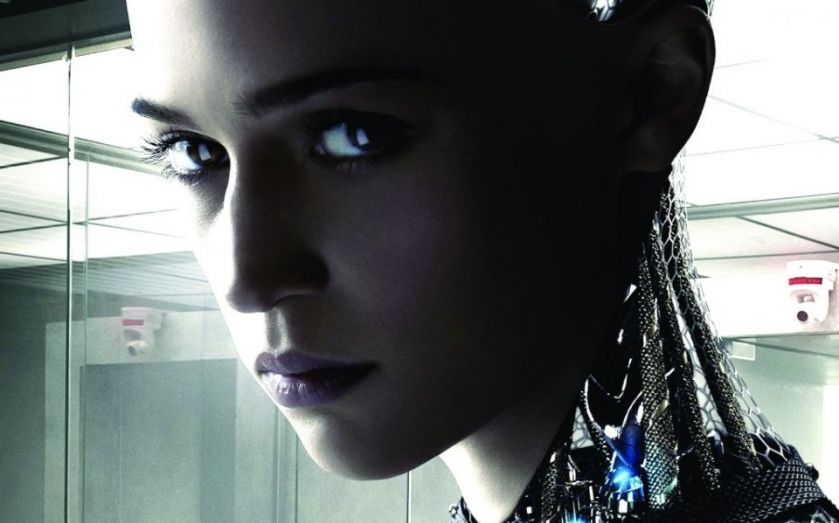Film review: Ex Machina is a psychological techno-thriller tour de force

Cert 15 | ★★★★★
With everyone from Stephen Hawking to Elon Musk warning we’re about to be slaughtered by artificial super-intelligences, Ex Machina is a timely reflection on consciousness, creativity, hubris, and the possibilities that await us just around the corner. Author-turned-screenwriter Alex Garland’s directorial debut is a psychological techno-thriller tour de force.
Caleb is a young programmer working for the world’s biggest search engine company, Bluebook. He wins a competition, and is whisked away to the Scandinavian wilderness to spend a week with the company’s reclusive founder and CEO, Nathan, whose Bond villain’s lair should have set alarm bells ringing. Nathan is a brogrammer-savant, who wrote Bluebook’s base code at 13, and now spends his days pumping iron, getting hammered, and creating artificially intelligent humanoid robots. It emerges that Nathan wants to see if his latest creation – otherworldly android Ava – can convince Caleb that she is sentient and self-aware.
Ex Machina successfully marries serious philosophical discussion with an attitude towards contemporary technology that borders on the satirical. There is so little action that it could easily work as a stage play, but the story steals from the greats, with flashes of 2001, Frankenstein, Metropolis, Bluebeard, even Charlie and the Chocolate Factory. The result is a film that feels familiar but subtly subverts expectations, keeping the viewer guessing.
For the premise to work you need to accept that obviously smart people are capable of mind-boggling stupidity. Fortunately Domhnall Gleeson’s Caleb is a convincing mix of naïve enthusiasm and neediness, while Oscar Isaac hits it out of the park as the hedonistic, self-destructive, alpha-nerd, Nathan. Sonoya Mizuno is similarly outstanding as Nathan’s mute, enigmatic housekeeper.
Among a universally excellent cast Alicia Vikander’s ethereal “other”, Ava, is most impressive. At first she is child-like, then assertively sexual in a way that places her firmly on the icky side of the uncanny valley – a knowing inversion of the stock manic pixie dream girl. These great performances stand out against beautiful scenery and clinical sets, and are amplified by a deliberately unsettling score. There’s nothing artificial about Ex Machina’s intelligence.